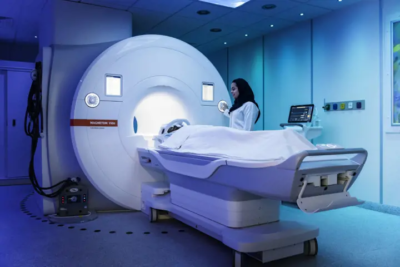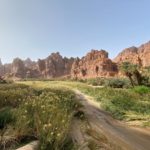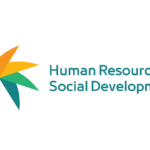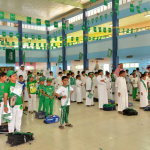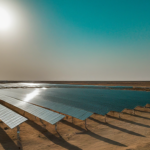
“All things considered it is a logical move from the UAE and it was only a matter of time that they did so. It will also be a matter of time before other GCC countries follow. Saudi Arabia may be the outlier because they are going to be more dependent on oil longer, their transition to a liberal society is slower and because of how big they are population-wise, but it can also surprise you. The UAE is often the litmus test for many changes in the region and this may be the case now as well.”
-Sami Halabi, director of policy and co-founder at Triangle, commenting on the UAE’s decision to move the weekend for public sector employees to Saturday and Sunday. [Arabian Business]

“In Europe and especially in France there has sometimes been a kind of bad habit to link Saudi Arabia with the financing of terrorism and we have to break this image and what is now purely fake news.”
–Nathalie Goulet, French Senator, in a recent interview with the Arab News program “Frankly Speaking.” The Senator added Saudi Arabia is giving the world an “excellent example” of how to manage Zakat charitable giving so as to eliminate extremist financing. [Arab News]

“I was also hugely surprised by the number of women working at the airport. I would venture to say that every customs desk was run by a woman. I would later learn, from a Saudi native and festival delegate at my hotel, that this is a huge change in the culture and that, even five years ago, none of these official positions would be held by a woman.”
-Dianna Lodderhose writing for Deadline magazine about her coverage of the Red Sea International Film Festival. [Deadline]

“The thought of organizing a film festival in Saudi Arabia was unimaginable just five years ago.”
-Mohamed Abdel Rahman, Egyptian art critic, on the start of the Red Sea Film Festival in Jeddah less than four years after a 35-year ban on cinemas was lifted. PwC estimates that Saudi Arabia’s annual box office could reach $950 million by 2030 and that Saudi Arabia’s forecast population of nearly 40 million could absorb up to 2,600 cinema screens. [AFP]

“We left our big international law firm to venture out and start our own law firm here in Riyadh…I don’t think we’d do that if now if 2022 wasn’t going to be a positive year for the Saudi economy…and this is the sentiment on the ground here.”
-Fahad AlMalki, Partner at SuhailPartners LLP, speaking with The 966 Podcast about the economic sentiment on the ground in Riyadh and the opportunities available now in Saudi Arabia compared with 10 years ago. [The 966]

“If you step back, 80% of the growth of oil production in the 2010s came from the United States. If that machine is broken, and we’re not going to get a lot more oil out of the United States, our whole understanding of what the oil market looks like in the 2020s needs to change.”
Nikos Tsafos, an energy expert at the Center for Strategic and International Studies. [CNN]

“More consequential right now than the long-term geopolitical implications of a distant net-zero world are the sometimes counterintuitive short-term perils that will arrive in the next few decades, as the new geopolitics of clean energy combines with the old geopolitics of oil and gas.”
-Jason Bordoff and Meghan L. O’Sullivan write in Foreign Affairs about promise and peril of a global transition to clean(er) energy. [Foreign Affairs]

“There is a wealth of undiscovered talent in Saudi Arabia and across the Arab world… we are very proud to enable these brilliant artists to showcase their work by investing in their talents and empowering them to realize their dreams through the Red Sea Fund. These exceptional cinematic works will challenge people’s perceptions of traditional cinema and revive the film industry in KSA and the region.”
Edouard Waintrop, artistic director of the Red Sea International Film Festival, commenting on the Red Sea Fund which will support 90 selected film projects from the Arab World and Africa to support. [Eurasia Review]

“Previous administrations pursued maximalist aims that rebounded against US interests leading to ‘hard lessons learnt’… the current US administration is focused on ‘the basics of building, maintaining and strengthening our partnerships and alliances here,’ describing those alliances as a ‘unique comparative advantage.'”
–Brett McGurk, White House co-ordinator for the Middle East and North Africa who also served in the Bush, Obama and Trump administrations, comments on evolving U.S. Middle East policy. [The National]

“Could Saudi Arabia produce the next Tiger Woods? The answer is ‘yes.’ But it’s a long-term ‘yes’ and a generational ‘yes.’ In the mid-1980s, there was a gentleman called Sven Tumba from Sweden, who was an ice hockey player who loved golf. He went on this mission to create an opportunity to grow grassroots golf in Sweden. Look where Sweden is today. They’ve got a major championship winner (2016 Open champion Henrik Stenson).”
-Greg Norman, CEO of LIV Golf Investments, a newly formed, Saudi-backed company that will bring a series of 10 new events to the Asian Tour in 2022. [Zawya]



